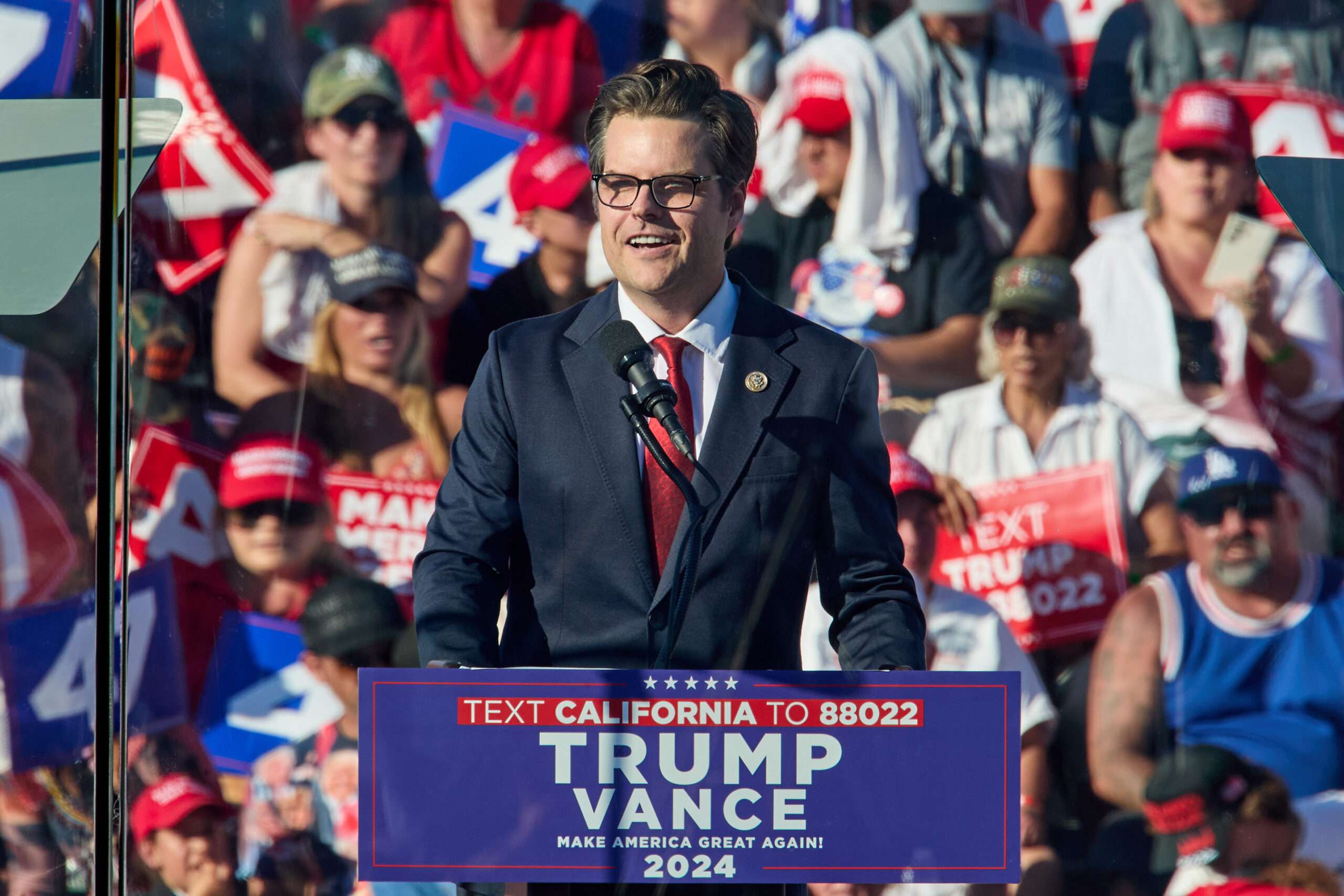The Numbers Don’t Support Skipping Senate Oversight of Trump’s Unconventional Cabinet Selections
In recent weeks, the political landscape has been shaken by Donald Trump’s announcement of controversial nominees for key cabinet positions, most notably former Florida Congressman Matt Gaetz as attorney general. Gaetz’s nomination has drawn skepticism even from within Republican ranks, with certain members of the party expressing disbelief over his lack of legal qualifications and his history of antagonism towards fellow Republicans. Other nominations, such as Fox News host Pete Hegseth for defense secretary and anti-vaxxer Robert F. Kennedy Jr. for health and human services, have similarly generated pushback, raising questions about the wisdom and effectiveness of Trump’s proposed appointments. As he seeks to fill these positions, Trump faces a potential roadblock: the necessity of Senate confirmation, particularly when a number of GOP senators have signaled they will not automatically support his choices.
Section 2 of Article II of the Constitution outlines the president’s responsibility to nominate and appoint federal officers, but it also requires the Senate’s “advice and consent.” With a Republican-controlled Senate, it would take just a handful of dissenting GOP senators to block a nomination, a scenario that appears likely given the significant reservations about Trump’s preferred nominees. To circumvent these challenges, Trump has suggested that Republican senators seeking leadership positions agree to utilize recess appointments, a concept outlined in the Constitution that allows the president to fill vacancies when Congress is in recess. While this strategy could potentially allow Trump’s controversial nominees, including Gaetz, to assume office without undergoing the typical vetting process, it hinges on the Senate’s collective agreement to call for a recess.
The 2014 Supreme Court case NLRB v. Canning has clarified some aspects of recess appointments but also sets limitations. In that case, the Court determined that a recess lasting less than ten days is generally too short for a president to make such appointments. While this could theoretically allow Trump to fill positions with his nominees without Senate scrutiny, it requires a majority of the Senate to approve a recess, and questions remain as to whether 51 Republican senators would agree to support such a move, especially for candidates as controversial as Gaetz. Several Republican senators have publicly expressed hesitation about abandoning the traditional confirmation process, emphasizing their constitutional responsibilities and the potential political ramifications of endorsing nominees without proper vetting.
Senators Lisa Murkowski and Susan Collins have both made statements indicating their opposition to circumventing the confirmation process, reinforcing the idea that the Senate should maintain its independent role in vetting presidential nominees. Murkowski, defending the Senate’s constitutional prerogatives, asserted that the body should not simply serve as an extension of the White House. Meanwhile, Collins voiced concern about the implications of Trump’s nominations, highlighting the need for thorough background checks and formal hearings. Other GOP senators like Joni Ernst and Mike Rounds have echoed similar sentiments, asserting their intention to conduct due diligence rather than allowing expedited appointments without adequate scrutiny.
As skepticism mounts over Gaetz’s viability as a nominee, some Republican figures, including former House Speaker Kevin McCarthy, have predicted that he will not receive the necessary support to be confirmed. McCarthy’s assertion reflects broader sentiment within the party, as indicated by remarks from senators such as Kevin Cramer, who expressed doubts about the likelihood of Gaetz’s confirmation, regardless of the path chosen for his appointment. These perspectives suggest that Trump’s agenda faces notable resistance even within his party and shine a light on the complexities of navigating the Senate’s confirmation process, particularly for unprecedented and contentious nominations such as that of Gaetz.
Ultimately, the ongoing debate about Trump’s nominees highlights a fundamental tension within the Republican Party—balancing loyalty to the former president with adherence to constitutional protocols and traditional Senate practices. As various senators evaluate their positions, the question remains whether Trump will be able to successfully position his controversial choices in key roles or if the Senate’s historical norms will prevail, maintaining the expectation that nominees must undergo thorough scrutiny before taking office. As the situation develops, it appears increasingly uncertain whether Trump’s approach to bypassing the standard confirmation process will garner the necessary support, potentially stymieing his ability to fill critical positions within his administration.
Share this content:












Post Comment